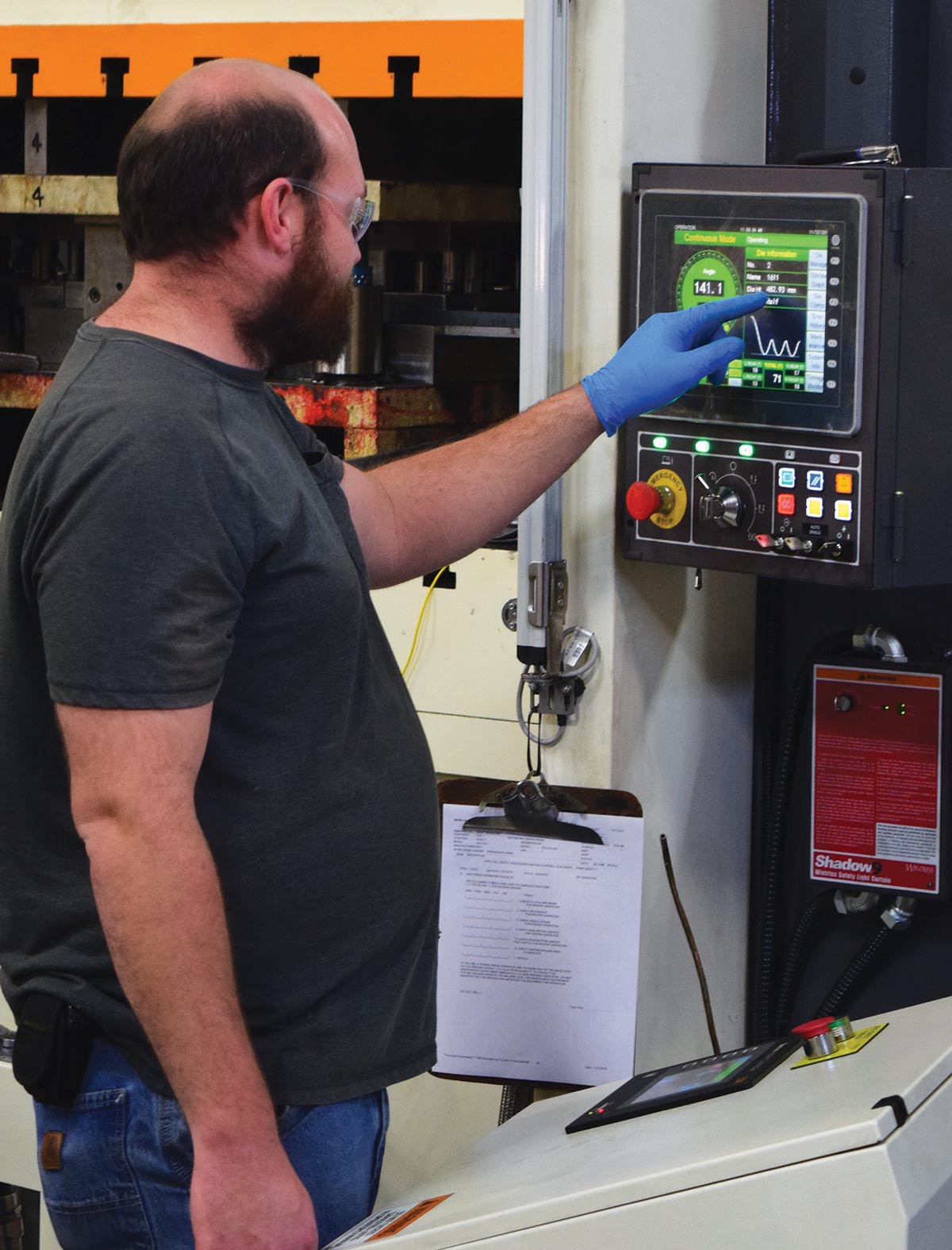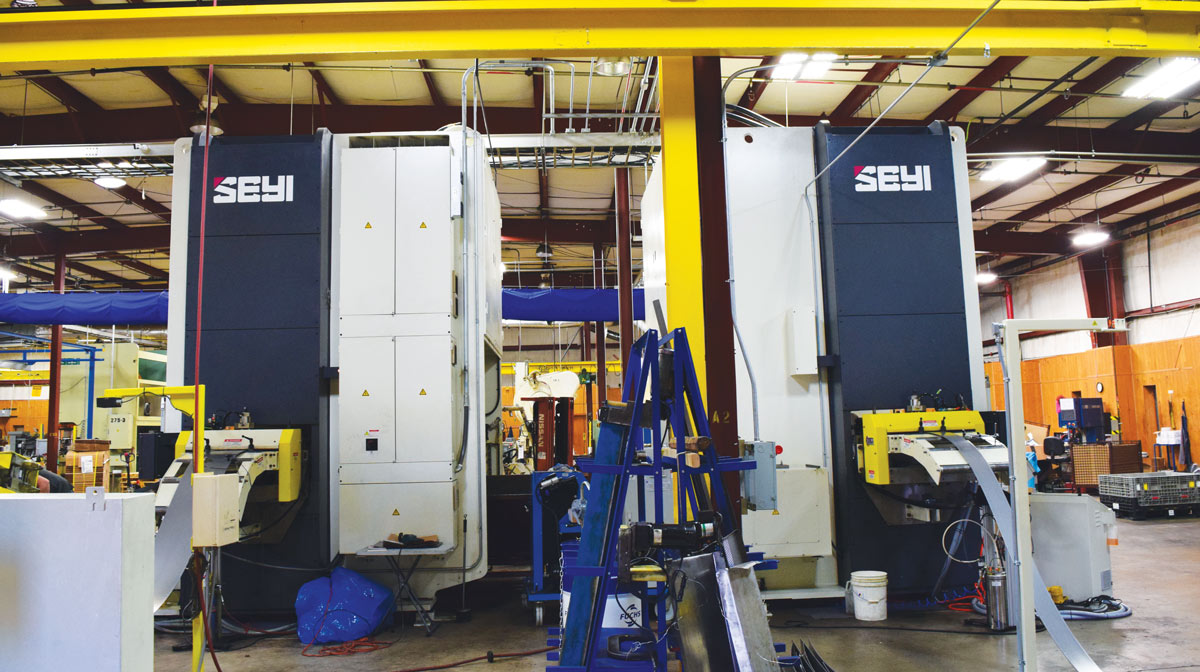ubbed the vehicle-friendly state, Alabama is expected to become the nation’s No. 2 automaker by 2022. In 2018 Mercedes-Benz produced its 3 millionth vehicle while Honda and Hyundai closed 2018 with production numbers of more than 320,000 vehicles each. Toyota and Mazda jointly plan to build a $1.6 billion vehicle production plant in Huntsville. The facility is expected to open in 2021. Toyota Boshoku America is building a $50 million factory in Athens, Alabama.
The Economic Development Partnership of Alabama credited investments in infrastructure, workforce development, training, and a network of suppliers with helping Alabama mature into a “true automotive state.”
Also based in Athens, T&C Stamping Inc. is a critical link in the automotive supply chain. It specializes in complex, close-tolerance metal stampings and subassemblies. The company processes 15,000 tons of raw materials and stamps more than 130 million pieces annually in its 96,000-sq.-ft. facility. T&C Stamping’s services include tool design/build, prototyping, progressive die and drawn stampings.
“Our tool-and-die expertise gives us the capability to design and build for an economical manufacturing process that results in a high-quality part at a competitive price,” says T&C Stamping Sales and Marketing Manager Weston Coleman.
When the company won new automotive business a few years back, it began to look at updating its stamping equipment. “A lot of the jobs ran in our older presses [but that] was becoming a liability in terms of downtime due to frequent maintenance issues,” Coleman says. “We saw a demo on servo press technology and quickly realized that the advantages went far beyond just eliminating our maintenance problems.”
T&C Stamping researched options from different servo press builders while looking at its current needs and future goals. Faced with higher build rates at automakers, the stamper wanted the capability to support higher tonnage volumes.
 We realized the advantages went beyond just eliminating maintenance problems.
We realized the advantages went beyond just eliminating maintenance problems. 
“We chose Seyi America,” says Coleman. “This was our first servo press. We had a number of their traditional mechanical presses and had experience with their equipment and their service. Our maintenance technician was also comfortable with their machinery. There are a lot of good presses out there but it made good business sense to go with something we knew.”
The manufacturer installed a turnkey Seyi 330-ton SD2 Series solid-frame crank servo press in 2018, followed by a second 330-ton Seyi SD2 servo press with feedline in October 2019.
“The installations went like clockwork,” Coleman says. “With the second press, we were running production parts in just two weeks.”
Despite the learning curve with the servo presses, Coleman adds that Seyi’s training approach made press operation seamless for operators and managers.
T&C Stamping uses the two presses to run 10 part numbers from high-strength, low-alloy (HSLA) steel in gauges up to 1/8 in. Operators change progressive dies frequently.
“The programmability of these presses reduces change over time,” Coleman notes. “Some of our parts specify significant draws. You can’t draw at high speed because you’ll tear the metal and crash the die. We’re able to slow the stroke at bottom dead center (BDC) then speed back up to clear the die. We’re probably cutting stroke time in half.”
The ability of the servo press’ slide to slow and the ram to dwell at or just above BDC also means more in-die operations such as tapping can occur inside the press. These functions hold the part stable, like a fixture, as the in-die operation takes place.

“We have a bracket part that requires insertion of two studs,” say Coleman. “We’re able to accomplish this operation in the servo press without the need for a manual secondary operation.”
“The servo press’s ability to dwell is the key,” explains Seyi America Senior Regional Sales Manager Jimmy Pilaczynski. “This feature gives the press the time needed to insert the studs into the part. Five years ago, we didn’t have the technology to dwell for longer than 10 seconds. Now the press can dwell for as long as the operator needs it to. Our focus has always been to make our press technology useful to the customer. When it came to servo-forming, we didn’t re-engineer it, we just made it better. We are one of only two press builders that use a true direct-drive motor in our servo presses. The ease of programming is another advantage.”

The ability to offer higher tonnage stampings at higher volumes sets T&C Stamping apart in a state humming with competing fabricators.
“That new Toyota/Mazda plant is being built 10 miles from here,” Coleman says. “The potential for growth is enormous. A lot of the parts that fit the 330-ton range are suited to that OEM’s applications. And because we build all our tooling in house, we don’t have the overhead a lot of the high-tonnage guys have. Most stampers outsource that work. We design and build it all right here in Athens. And we’re very good at what we do.”
www.seyi.com.
www.tandcstamping.com.